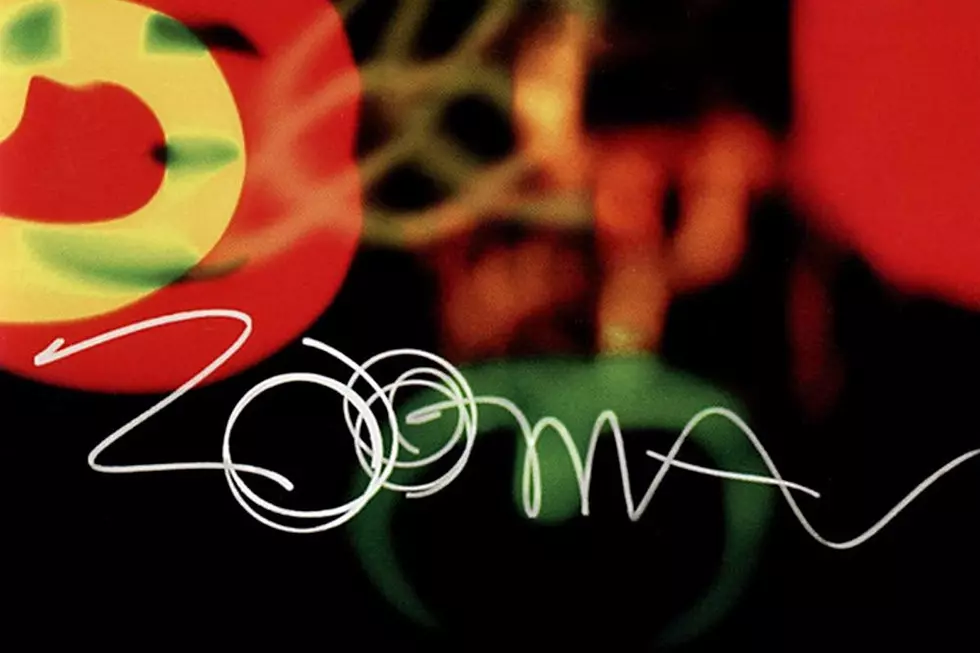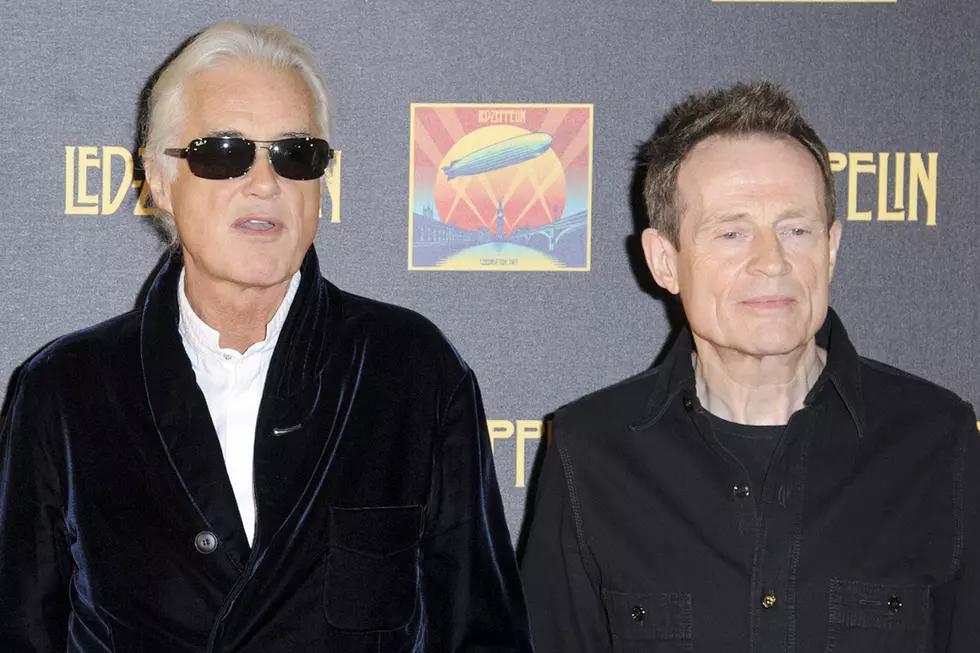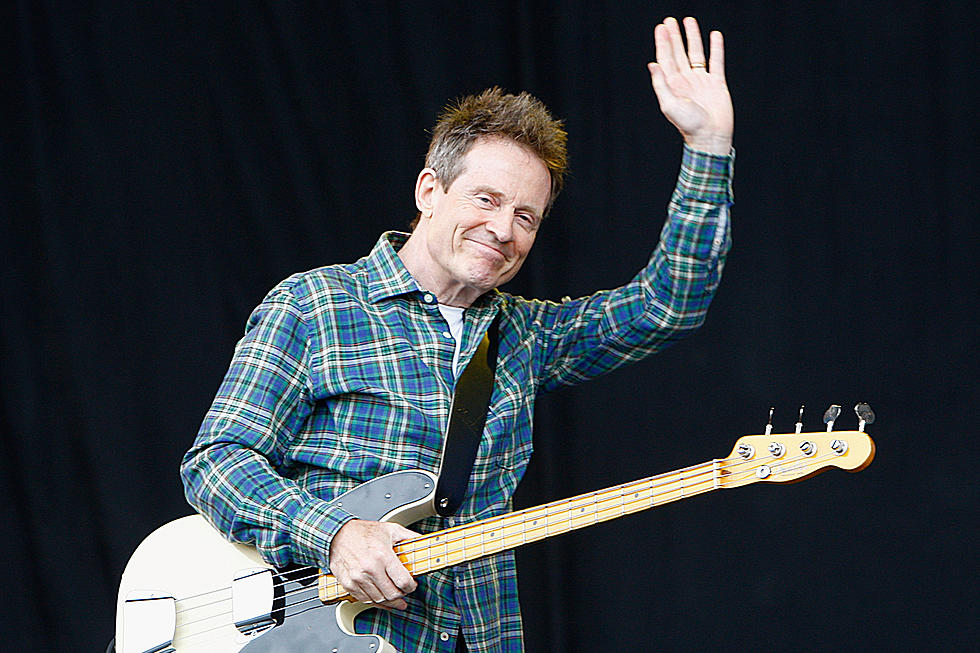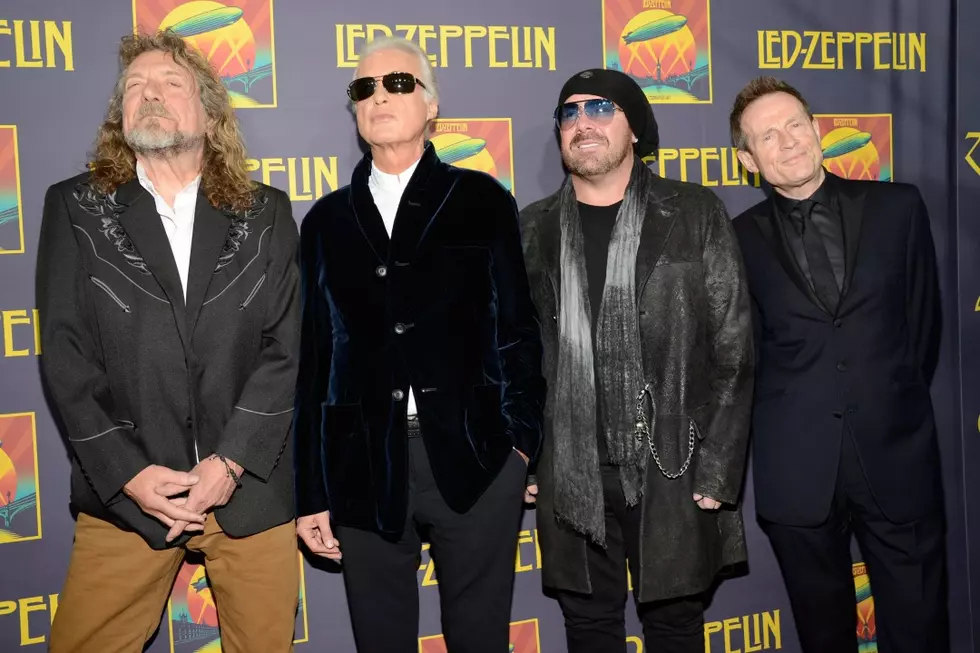
When John Paul Jones Finally Released His First Solo Album
It took nearly 20 years for John Paul Jones to make a personal musical statement after Led Zeppelin’s breakup in 1980. When he did, he knew exactly what he was trying to say.
Unfortunately, people either didn’t listen or didn’t understand.
The multi-instrumentalist hadn’t been idle since the death of John Bonham brought an end to Led Zeppelin in 1980. He started out as a session musician – just like bandmate Jimmy Page – and with the knowledge of how to work with others, he kept himself busy. Nothing drew as much attention as Page and Robert Plant’s projects, including their collaborations as the Honeydrippers and Page and Plant.
Jones didn't release a debut solo album, Zooma, until Sept. 6, 1999. “This ‘roaring and powerful’ nine-track instrumental albums features Jones playing four-string, 10-string and 12-string basses, as well as bass lap steel, Kyma, Mandola, organ and guitars while also arranging and conducting members of the London Symphony Orchestra for one of the tracks,” a press release noted. “John Paul Jones envisions Zooma as the advent of an ongoing solo career. He is keen to return to touring, and a planned world tour will begin with major cities in fall.”
In an interview with British DJ Tommy Vance, Jones said Zooma “isn’t commercial, not that commercial. On the other hand, there are no vocals on the songs, no lyrics [so] it’s got to be interesting. It’s got to be listenable and something’s got to be happening all the time. ... It’s more perverse than diverse, but that’s how I like it. That’s how I do it. I can’t really do it any other way.”
He was confident that his session experience gave him all the tools he needed to complete the work. “You’d do two, three sessions a day, six, seven days a week, and I was doing arrangements as well a bit later,” Jones said. “You could do an Engelbert Humperdinck session, an Animals session … a Dinah Washington session – you could be rock, rhythm and blues, country, but all in one day. You’d go literally from one studio to another. Hundreds of musicians crossing and recrossing London. They’d put the parts in front of you, count you in, do a run-through, do a take, next title. You’d make two or three titles in three hours, and then you’re onto a completely different style of music for the next session.”
As for the title, “it’s onomatopoeic in a way," Jones told an American radio station. "It has for me the feeling of the album and the energy of the album, all encapsulated in one little word.” He explained that the idea of adding human voices was never an option. “It’s a very personal record for me," Jones said. "It’s my own music, and my own music doesn’t really include vocals."
The idea was for Zooma to "sound of the time – like it was made last year and not just something drug up from 20 years ago,” Jones told Expose at the time. “It’s mostly traditional music done on traditional instruments. I like to use technology too. When I was in Zeppelin, I used analog synthesizers like the VCS3, but we didn't tell anyone about it. I've always been interested in experimental music and music concrete.”
Jones said he viewed the album "as a composition, from a micro level to the macro level. I arrive at everything the same way. You have compositional questions to answer and you just have to answer them.”
In terms of the writing, Jones said "the album started from the three heavier riffs. I had to work out what I play. I like to play blues based rock; I'm not a jazz-based player and not an experimentalist. Having to work out three of the heavier riffs and walking helped to determine what I needed.”
Jones said he was inspired by “pretty much everything. Nature does, literature and other forms of music as well. It will just set me off in another direction. I like how that happens. Not a lick or someone else’s song necessarily. Often times I like the way someone else has answered their questions.”
Zooma was released on King Crimson leader Robert Fripp’s DGM label, following a discussion with the pair’s mutual manager. “I’d heard [Fripp] had a label, and I was asking about it, and it turns out that it’s an unusual label. There are no contracts. And also he insists the artists own their own copyrights and their own masters," Jones said. "In the early Zeppelin days, we never had a contract with Peter Grant, the manager … so it seemed a really good way to go.”
But Jones' main focus was on touring. “The impetus for this album was the live show,” he said. “I was thinking about doing the album for a long time. If I do an album, I will have a reason to go out and play it since it’s designed to be played live.”
Having said that, he was aware he had a shadow to step out from. “We’re going to Europe, U.K., Japan, then come back to the U.S. and go down South. You can't go everywhere since we didn't know what to expect at all," Jones said. "Your representation follows you, not precedes you.”
Zooma didn't end up returning Jones to the big time. But he didn’t write it for that audience – and the experience reinvigorated him. "I want to make another album,” Jones said at the time. “I’ve already got more ideas from this album and tour.”
The Best Song From Every Led Zeppelin Album
Why Led Zeppelin Won’t Reunite Again
More From 105.7 The Hawk










